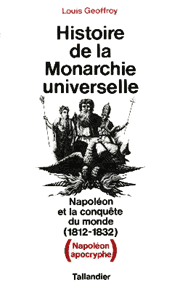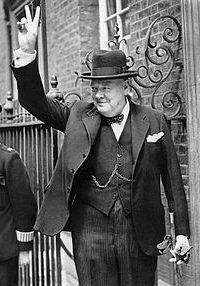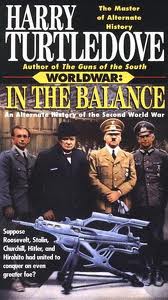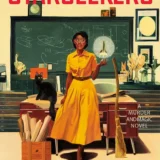As Harry Turtledove, the master of alternate history, said in the introduction to The Best Alternate History Stories of the 20th Century, even historical memoirs can sometimes be so far from the truth they can be classified as science fiction. He used the example of Civil War veterans who highlighted their successes and blamed superiors or subordinates for the overall failure of the cause (you can probably guess which side he referred to). Or perhaps in retrospect they admit the South never had a chance, but their noble and chivalrous defiance should be celebrated and history should reflect the Union only won because of numbers and not skill.
But what if the Confederacy won the Civil War? How would the authors and their memoirs be different? And what if…they speculated about what would be different had the Confederacy lost the war? Flush from their great triumph in the War of Secession, would they predict the refusal of a “Southron” to submit to Union occupation and carry out partisan warfare even if it took generations?
Just think about how some minor change to history can change a person’s mind.
The above is an example of a “recursive alternate history” or, as it is more popularly known on the forums, a “double-blind what if” (DBWI). This usually takes the form of asking “what if” about something from real history, treating it as if it hadn’t happened. For example, “what if England had resisted Napoleon successfully?” In fact the question is asked in the first ever published form of a DBWI.
 In Louis Geoffroy’s 1836 book Napoleon and the Conquest of the World, a character from the alternate universe discusses a fantasy novel where the Emperor suffered an incredible defeat at the tiny town of Waterloo. Here you have a character speculating on what would have happened had history not played out the way it did. Alternate historians do it all the time, the difference here is it is being done in an alternate history and the divergence he speculates on is a real event in our history. What does he think the short-term effects will be on the change? How will the fall of Napoleon (who in his mind secured French dominance over the world) change history? Does he get it right?
In Louis Geoffroy’s 1836 book Napoleon and the Conquest of the World, a character from the alternate universe discusses a fantasy novel where the Emperor suffered an incredible defeat at the tiny town of Waterloo. Here you have a character speculating on what would have happened had history not played out the way it did. Alternate historians do it all the time, the difference here is it is being done in an alternate history and the divergence he speculates on is a real event in our history. What does he think the short-term effects will be on the change? How will the fall of Napoleon (who in his mind secured French dominance over the world) change history? Does he get it right?
Consider what Mark Olson at the “Histories: The Way We Weren’t” panel at Boskone 28 said: “We look at this as the best of all possible worlds, but the French know it isn’t, because most people speak English.” From the POV of Geoffrey’s character, the world is a better place because everyone speaks French. Any reverse is a poorer world at least from the character’s perspective. Or is it? We tell ourselves our history is the best of all possible worlds…but what if it is not?
 I mean maybe more people should speak English for this to be a better world. In fact, they should all be united. Sherlock Holmes seemed to think so when he toasted an American couple’s new life together and wished one day their nations will be reunited again in “The Adventure of the Noble Bachelor“. Winston Churchill wrote about the idea in his short story “If Lee had not Won the Battle of Gettysburg“. Yes, you heard me right, Winston “We shall fight on the beaches” Churchill. Before he fought the Nazi scourge, he wrote an alternate history where a historian speculates about what would happen if Lee had lost the Battle of Gettysburg. The historian’s world is incredibly optimistic. Not only does the Confederacy quickly free the slaves, but later on it reunites with the United States and the British Empire to form an English-speaking union.
I mean maybe more people should speak English for this to be a better world. In fact, they should all be united. Sherlock Holmes seemed to think so when he toasted an American couple’s new life together and wished one day their nations will be reunited again in “The Adventure of the Noble Bachelor“. Winston Churchill wrote about the idea in his short story “If Lee had not Won the Battle of Gettysburg“. Yes, you heard me right, Winston “We shall fight on the beaches” Churchill. Before he fought the Nazi scourge, he wrote an alternate history where a historian speculates about what would happen if Lee had lost the Battle of Gettysburg. The historian’s world is incredibly optimistic. Not only does the Confederacy quickly free the slaves, but later on it reunites with the United States and the British Empire to form an English-speaking union.
Such an idea might not seem fanciful since many wished to forestall the inevitable collapse of the Empire by creating an “Imperial Federation“. This idea proved popular in the late 19th/early 20th century as a way to solve the Home Rule problem and prevent the UK from becoming a second-rate power. Fans of the Victorian era would probably love to have an Imperial Federation of Britain where the sun never sets instead of the dinky Commonwealth. Still we must ask ourselves, would this federation be a “whites only” club or would Africans, Indians and others be able to join as well? Would ethnic Brits dominate government positions or would it be open based on merit and not by birth? What happens if the dominions begin to have increased influence over imperial policy or, heaven forbid, those uppity colonials across the pond actually join and bring their economic might to the table?
 Yet at the time the idea the British Empire could fall seemed impossible. Sometimes we are so certain about the success of a nation, culture, ideology, philosophy, religion, etc. we do not even stop to consider what if we are wrong. Take the classic The Man in the High Castle by Philip K. Dick. In this world the Axis won World War II. Germany and Japan have divided the world between each other and have settled into a nice little Cold War. A minor source of contention between the two superpowers is the best-selling novel The Grasshopper Lies Heavy by Hawthorne Abendsen. Banned in the German sphere, but readily available in Japan and her puppets, the novel is an alternate history where the Axis lost World War II. It gets some things right, such as the American defeat of Japan, Rommel’s defeat in North Africa and the Battle of Stalingrad being a turning point in the war. Except it is not the Soviets who get the credit for the victory, but the British who send troops up the Caucasus to relieve the battered Russians. The post-war world features a Cold War between a British Empire which dominates Europe and the United States, allied with Kuomintang China,
Yet at the time the idea the British Empire could fall seemed impossible. Sometimes we are so certain about the success of a nation, culture, ideology, philosophy, religion, etc. we do not even stop to consider what if we are wrong. Take the classic The Man in the High Castle by Philip K. Dick. In this world the Axis won World War II. Germany and Japan have divided the world between each other and have settled into a nice little Cold War. A minor source of contention between the two superpowers is the best-selling novel The Grasshopper Lies Heavy by Hawthorne Abendsen. Banned in the German sphere, but readily available in Japan and her puppets, the novel is an alternate history where the Axis lost World War II. It gets some things right, such as the American defeat of Japan, Rommel’s defeat in North Africa and the Battle of Stalingrad being a turning point in the war. Except it is not the Soviets who get the credit for the victory, but the British who send troops up the Caucasus to relieve the battered Russians. The post-war world features a Cold War between a British Empire which dominates Europe and the United States, allied with Kuomintang China,
Isn’t it interesting how irrelevant the Soviet Union and the Red Chinese are in Grasshoppper? The characters cannot even fathom an alternate history where the Soviet Union is a major power. To them communism is a failed philosophy and the Slavs and the Chinese are too inferior to hold power. Certainly an extreme example, but are there any ideas consigned to the ash bin of history we don’t even think about because the idea of them being successful seems laughable? Are certain events inevitable? Or can the march of history be stopped only if we are willing to face who we are and where we came from?
For a recent example of a DBWI, check out Osama by Lavie Tidhar where we are introduced to a world free from global terrorism and a private detective hired to track down the whereabouts of the author of the popular pulp novels featuring the criminal mastermind Osama bin Laden. In the meantime, before you look to the past (or even the future) don’t be so quick to make assumptions. Ask yourself the real reason why you think it will happen and make sure it is a good reason. Don’t make the same mistake so many characters in fiction have done.









William,
I have been an on and off again member of AH.com since…well since the beginning when the site was more than just a discussion board. I won't tell you what my original name(s) were since I am a little embarrassed by some of the first posts my teenage self made.
I also was very active on Alternia, a former competitor to AH.com that imploded quite nastily: https://alternatehistoryweeklyupdate.blogspot.com/…
I spent some time with the Alternia spin-offs and submitted some stories to Changing the Times, but the community that received a lot of my attention was the AH Wiki which still maintains several of my timelines, plus the policies and events (like the annual Stirling awards) I created as an admin. I eventually left because I wanted to write more and I disagreed with the changing site politics.
Communities grow and change constantly, both in our real and digital life. You can stay and fight the change, or just move on and let them grow.
PS: Sorry for posting this above your comment. For some reason the site won't let me directly reply to your message/
Have you ever gone on any alternate history forums? A lot of them are really great and you seem as if you would fit right in (I am assuming you have considering I only ever learnt about the AH weekly updates through alternatehistory.com).
I haven't gone in for Alternate History…mostly, I suppose, because I found my history classes difficult enough without confusing myself with fiction that deliberately distorts it. But I have to admit that you asked some interesting questions and evoked engaging ideas. Well written and interesting article, Matt.
So I have to ask. What's the ratio of your history books to your alternate history books?
With a B.S. in History and my long love affair with the subject, its safe to say I have a fair few tomes on my shelf…but my alternate history books vastly outnumber them, haha.
But in all seriousness, I have no illusions about history. Next to Math, it is probably the least favorite subject in school. That is why I have always been a fan of "counterfactuals" (the scholarly term for alternate history). Asking students "what if" can engage them in an otherwise "boring" subject, while at the same emphasizing why the event they are speculating on was so important to our history.
One last thing, you mention confusing yourself about real history if you ever got into alternate history. Interesting fact, my mother once asked me once how my grades in my high school history class were. I said they were fine and asked why, since this was one subject of mine she never had to concern herself with. She admitted she was worried because with all the alternate history I was reading she feared I would confuse the answers and fail my tests.
As the great wordsmith Will Smith once said: Parents Just Don't Understand.
You know, it seemed evident that you were a historian. I can't give up my history books, either. Years ago, I was fortunate to attend an interesting conference on teaching. I was surprised to find out that the two most revised highschool subject textbooks are mathematics and history. Most people, I imagine, would expect those two subjects to be the most static.
So in some ways, I suppose that I should change my crusty habits and be more into alternate history…since it fits in with the whole point of further inquiry. Any decent historian has to embrace that concept. If you don't, it may come back to bite you.
One thing I find interesting about your analysis is your engaging discussion concerning the change ups in geo-politcs. Sometimes the use of fiction is the only way to discuss the truth.
Historian is probably saying too much. Despite my degree I am still an amateur, the law is my trade.
I'm not surprised about history being often revised (although I am surprised about math). People and events are lionized/demonized depending on what is fashionable or politically desirable. There has also been a shift of importance recently from the political to the social. And, of course, we can't forget good old fashioned human ignorance and hate. Just recently I learned a local school district near my home is changing how they teach the Holocaust to students because of the parents who complained it was a myth.
What an enlightened time we live in. Sigh.
Sorry for getting off track there, but yes, I completely agree with your last point. Science fiction in general has been more willing to tackle subjects that the mainstream was too afraid or uninterested in covering. However we as fans shouldn't pat ourselves on the back too hard. There are still stories of HP Lovecraft I refuse to read outside my home due to the numerous times the N-word appears on the page (although people hold he changed his beliefs in his later years and see this change in "In the Walls of Eryx" his collaboration with Kenneth J. Sterling).
There's a great book out there called "What If?" It's a bunch of works collected by Robert Cowley and they deal with some fascinating topics. Not just, what if the south had won the Civil War, or what if the Nazis won WWII, but others. What if a Chinese Emperor in the 1200s hadn't destroyed all of his empire's oceanic navigation charts? Would the Chinese have discovered America first? What if Pontius Pilate hadn't ordered Christ's execution? What if a plague hadn't wiped out the Assyrian army besieging the (at the time) last remaining Jews in the Middle East. It's all very interesting stuff, check it out if you like having your mind blown.
The complete collection, in hardcover, is currently sitting on my bookshelf 😉 I never wrote a review of it, but a friend of mine posted one on my blog in case you care to check it out: https://alternatehistoryweeklyupdate.blogspot.com/…
The Chinese discovering the Americas before the Europeans has always been a favorite what if of mine. I always wondered how the Native Americans would have done if they had a century or more to recover from Old World diseases. I don't believe they would have driven the Europeans back into the sea, but the colonial history of both continents might have more similarities with colonial Africa and Asia then it did in OTL.
You know there's a "What If 2" book as well:
https://www.amazon.com/What-If-Eminent-Historians-…
Or is that included in your "complete collection"? 🙂
Another good one is "The Moscow Option"< https://www.amazon.com/Moscow-Option-Alternative-S…
Yep, "The Collected What If?" which inlcudes the complete texts (and maps) of What If? and What If? 2.
I have heard of The Moscow Option but never read. Uchronia was promoting the revised edition a lot around the time I began to read alternate history.
I've enjoyed Turtledove's work. I do think that 'alternative history' books can be a lot of fun because they can help you explore ideas about why things have happened, and how events change us as people. I wasn't aware however of Winston Churchill's efforts in that area. It's interesting to know he wrote that sort of speculative fiction.
Apparently speculating on alternate history is a past time for more than one British Prime Minister. Check out The Wondrous Tale of Alroy (https://www.uchronia.net/bib.cgi/label.html?id=disralroyx) by Benjamin Disraeli.